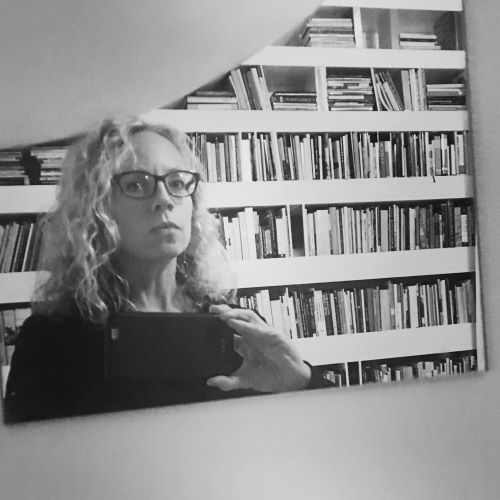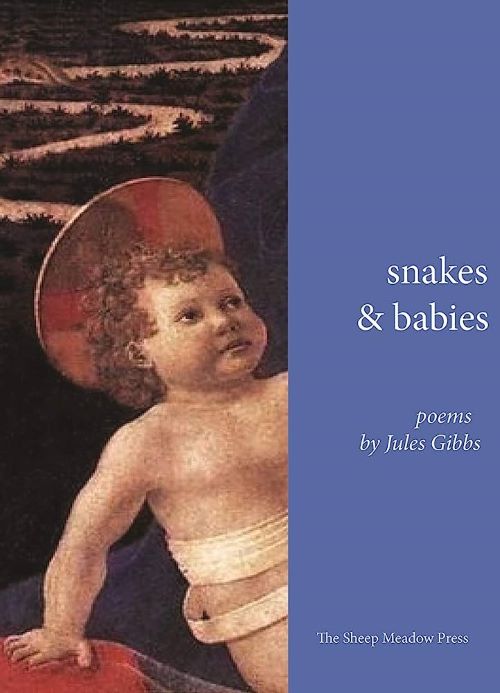There is a second distance in the distance. The two are distinctand want to meet, but will never meet. When you go there you will cometo one and not the other like a body that hovers just beyond your form—a mother you sense pulling away like a swarm of black bees from the hive, soft,with the spring lethargy of a lover. Father is a future metric spacious enoughto outpace you. It is tiring to never really be fused to them, to never settle in the ballastof treasure; tiring to fluctuate in a buzz that makes all space frantic, split.Yet there you are in an old polaroid, held in the in-between. The three of youreanimated by decay as a red wave moves slow but too soon eats furniturethen faces. Love’s old postures appear like one long slouchtowards X — where X could be anything — a father, a mother, you, the stained couch.
X
Feature Date
- June 17, 2023
Series
Selected By
Share This Poem
Print This Poem
“X” from SNAKES AND BABIES: by Jules Gibbs.
Published by The Sheep Meadow Press in 2020.
Copyright © 2020 by Jules Gibbs.
All rights reserved.
Reproduced by Poetry Daily with permission.
"In the teeth of Gibbs’ original style, one is struck, dazzled, seared, pleased, and astonished by her singular craft—how the carcass of language is broken, delivered, and devoured in the poet’s hunger to taste the flesh of language, desire, and myth. Gibbs observes, ‘One language for night / another for day’ yet we arrive inside the temple of an intimate and sensual voice, owned and reclaimed by a woman who is afire with her own reckoning, arousal, and resistance. The poet tells us, ‘Even at my most primitive / I can’t be the sort of violent / I long to be, clubbing facts / for sustenance.’ Such poems reach their talons and fangs into mythic cradles of memory, myth, nature, and flesh, lashing against the darkest and brightest rims of language. The poetry of Jules Gibbs’ never kneels but rises in its uncoiling of desire and power. Listen and repeat her truth: ‘No to the never forgetting. / No to the fat of yes.’"
—Rachel Eliza Griffiths, author of Seeing the Body
"In Snakes and Babies, Jules Gibbs explores the self as alien and as intimate. Through her gendered lens she envisions psychological and mythic origins of the self. From that vantage her poems navigate social and the political landscapes that define some of the madness of our broken culture. Her poems engage conflicts between the inner life and the world—not to be resolved but to be savored as language probing life."
—Peter Balakian, author of the Pulitzer Prize–winning collection Ozone Journal
"Can I just say that Jules Gibbs and her poems are some of my favorite weirdos? I mean, she’s an on-fire badass writer, and the poems!—the poems never stop moving, winding themselves around their glowing inner reactors, kicking their small (and large) feet through the roof of the sky. Sometimes they cry out in a storm because of the storm, but at other times they’re just hungry. They could eat an elk. They could drink the Milk Duds of the gods. These poems have a psychological and formal complexity to them that’s constantly shifting its weight—somehow always of the mind and the body both at once, of snakes and of babies. Weirdly, I am comforted, ‘Pow. Bang. / Right in the kisser.’"
—Matt Hart, author of The Obliterations
Poetry Daily Depends on You
With your support, we make reading the best contemporary poetry a treasured daily experience. Consider a contribution today.





